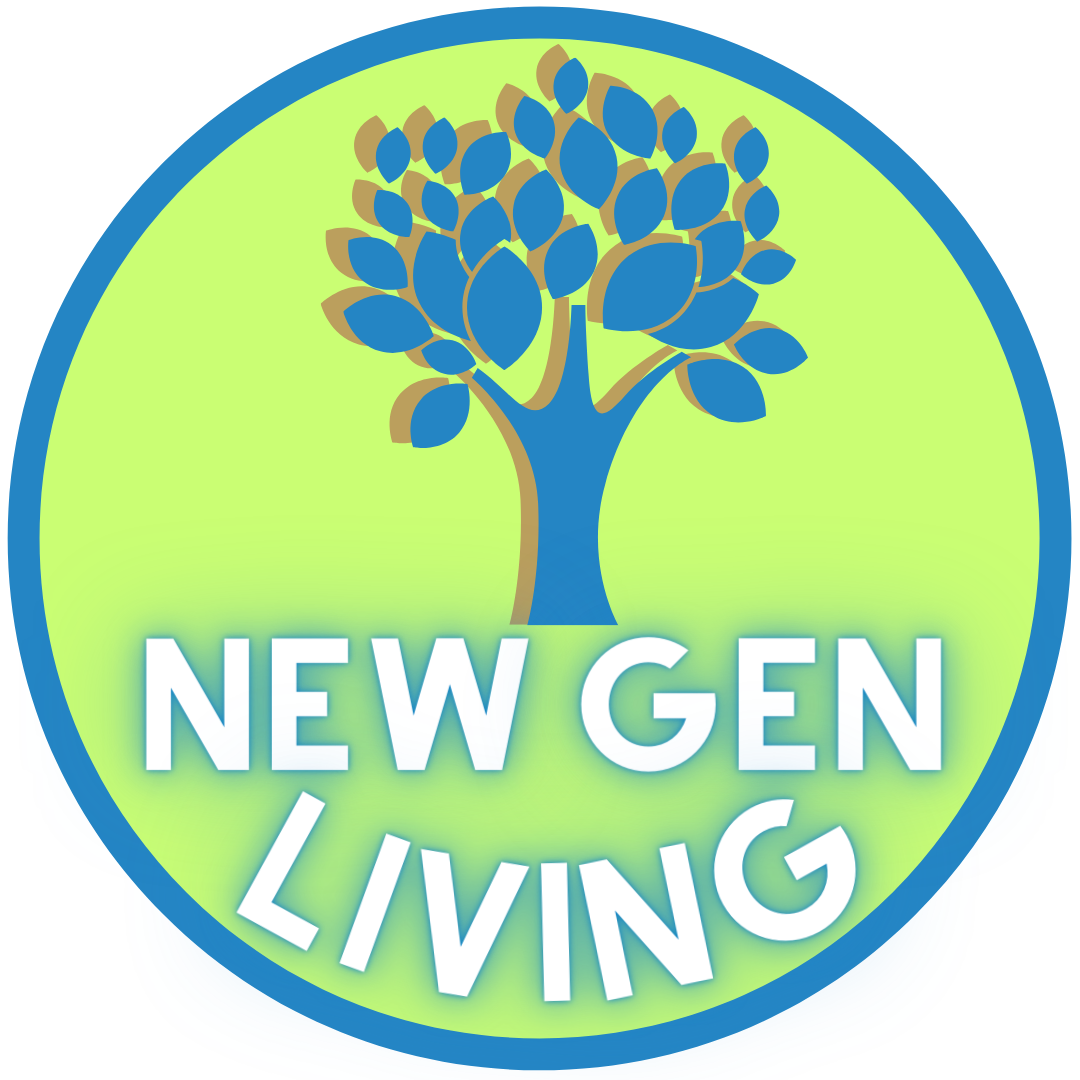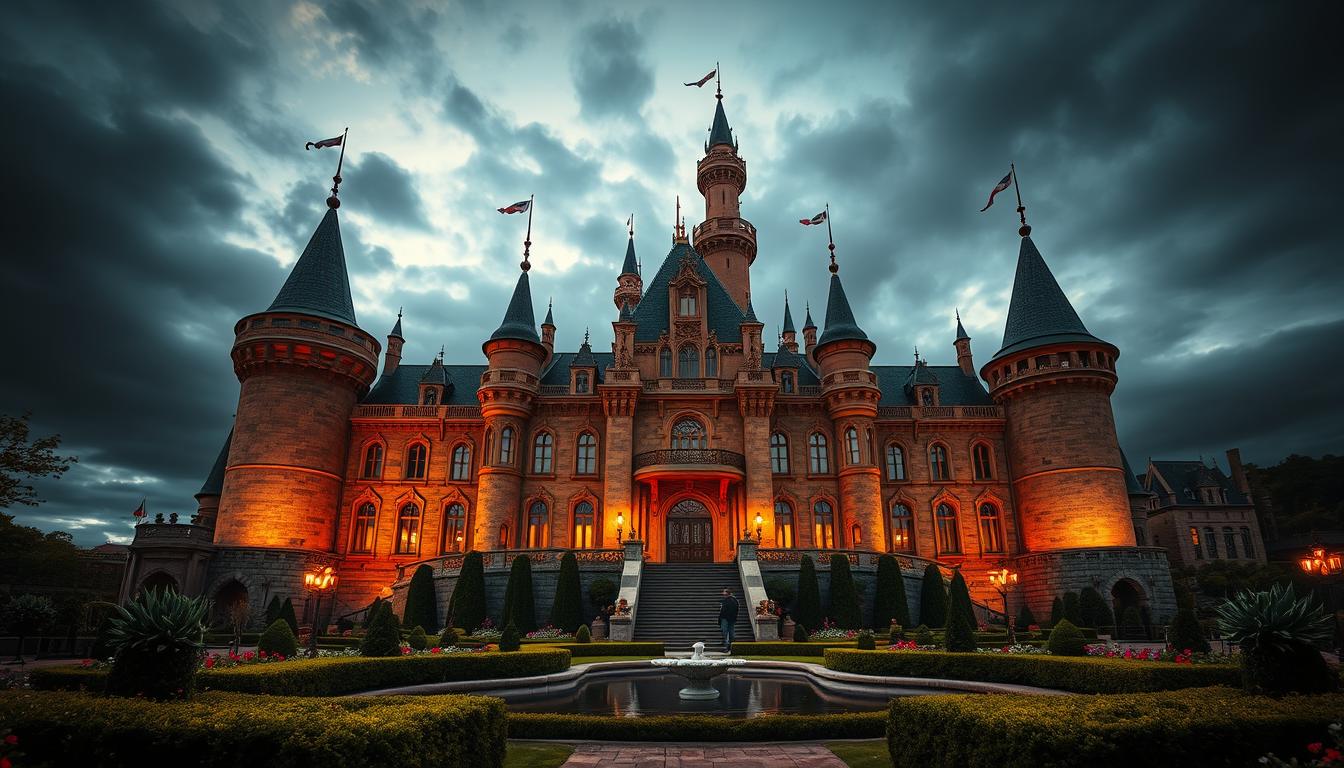Medieval charm is making a strong comeback in modern design and pop culture. From Pinterest’s 2025 trend predictions to viral TikTok fashion, this nostalgic movement blends historic elements with contemporary style. Think stone textures, chainmail jewelry, and dramatic silhouettes—all reimagined for today’s tastes.
Celebrities like Zendaya and Chappell Roan have embraced the look, sparking a surge in searches for gothic-inspired outfits. Social media platforms report a 45% jump in interest for DIY chainmail tutorials, proving the trend’s DIY appeal. It’s not just fashion—home decor and music visuals are also leaning into this romanticized past.
What’s driving the hype? Experts link it to broader cultural shifts, from debates about modern “technofeudalism” to a longing for simpler, storybook aesthetics. Whether you’re redecorating or refreshing your wardrobe, this trend offers endless creative inspiration.
Key Takeaways
- Pinterest forecasts castlecore as a top trend for 2025.
- Medieval-inspired fashion is gaining traction on social media.
- Celebrities like Zendaya have popularized the aesthetic.
- DIY projects, like chainmail jewelry, are trending.
- The movement reflects wider cultural themes.
What Is Castlecore? The Aesthetic Explained
Dark, moody, and layered—today’s take on medieval aesthetics is anything but outdated. Also called *medieval modern* or *royalcore*, this trend transforms home decor and fashion with stone textures, wrought iron, and antique jewelry. It’s a nod to the past, but with a bold, contemporary twist.
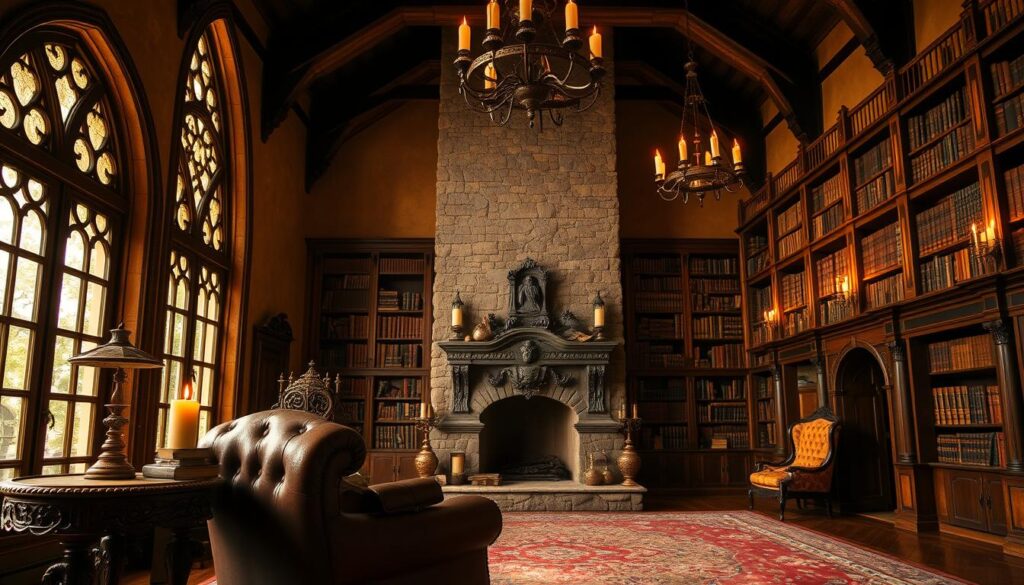
Rooted in history, this style draws from the 19th-century Gothic Revival and Arts & Crafts Movement. WGSN strategist Mia Jacobs calls it a “convergence of references from multiple time periods.” Think Christiane Lemieux’s castle renovation—where aged tapestries meet sleek, modern furniture.
The 2025 iteration leans into a “brooding visual language,” prioritizing drama over historical accuracy. Unlike the lighter, whimsical revivals of the 1970s, today’s version embraces dark hues and metal accents. Pair vintage finds with industrial lighting for a look that’s both rugged and refined.
“This movement thrives on layered textures—stone, velvet, and hammered metal—to create spaces that feel curated and lived-in.”
At its core, the movement aligns with maximalism’s rise. Inspired by castles, it encourages mixing eras and materials. The result? A rich, storytelling aesthetic that’s perfect for those craving depth in design.
Why Castlecore Is Trending: Escapism and Technofeudalism
Escapism fuels today’s fascination with medieval motifs, offering a retreat from digital overload. As screens dominate daily life, many crave tactile textures—stone walls, wrought iron—to ground themselves in a tangible world.
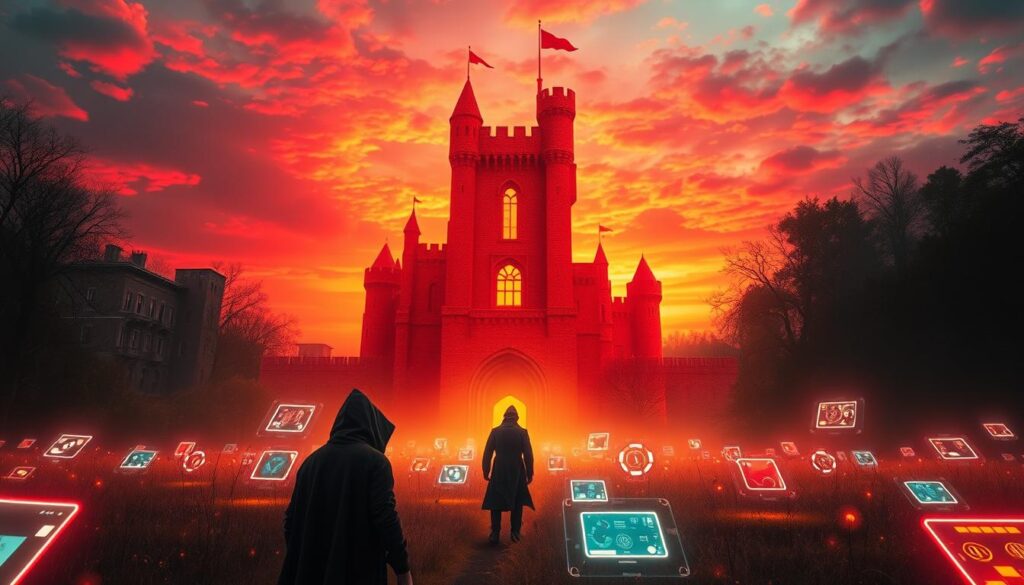
Yanis Varoufakis’ technofeudalism theory frames Amazon and Meta as digital lords, controlling modern serfs (users). This mirrors feudal hierarchies, where wealth gaps create stark divides. RAND Corporation’s “neomedieval world” paper notes similar fragmentation in today’s political landscapes.
Gen Z turns to medieval fantasy as a coping mechanism. The Guardian reports a 41.3% spike in fantasy book sales (2023–2024), while shows like House of the Dragon dominate pop culture. Carnegie Endowment research ties this to emotional polarization—people seek simpler, heroic narratives.
“Romantasy books and neo-medieval visuals provide emotional scaffolding for a generation facing polycrisis,” notes influencer Kathy Pham.
The table below contrasts feudal and modern structures:
| Feudal Era | Digital Age |
|---|---|
| Lords (nobility) | Tech CEOs (Bezos, Zuckerberg) |
| Serfs (peasants) | Users (data laborers) |
| Castles (strongholds) | Platforms (Amazon, Meta) |
| Land (power) | Data (wealth) |
This age of technofeudalism makes medieval aesthetics feel oddly relevant. Whether through DIY chainmail or dark academia decor, people reclaim agency—one stone-textured pillow at a time.
How to Embrace Castlecore: Design and Styling Essentials
Transform your space with rich textures and dramatic tones inspired by medieval grandeur. Whether updating a single room or revamping your entire home, these tips blend history with modern flair.
Materials and Textures: Stone, Metal, and Tapestries
Start with foundational materials like stone and wrought iron. Venetian plaster or faux-stone wallpaper adds depth without renovations. For furniture, reupholster chairs with medieval-inspired tapestries for instant character.
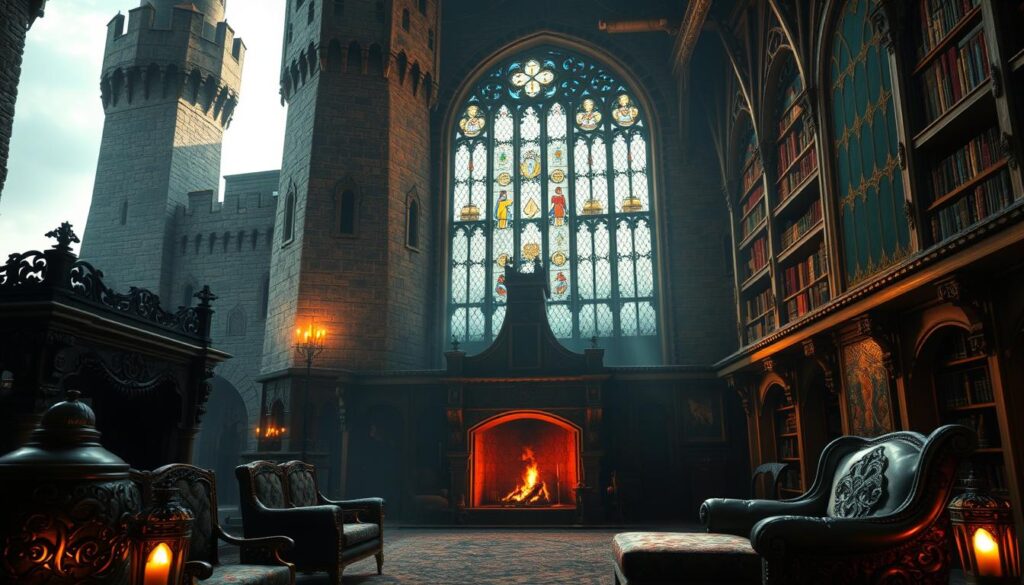
Wayfair’s Lark Manor Terracotta Cauldron (14.6″ H) makes an affordable accent piece. Layer iron candelabras with LED candles—like CB2’s Black Multi Taper Holder—for safe, atmospheric lighting.
Color Palettes: Moody Hues and Earthy Neutrals
Rebecca Goesling’s color-drenching technique works wonders with crimson or oxblood. Pair “Alabaster” walls with garnet tableware for contrast. Below, a quick guide to balancing shades:
| Base Color | Accent Hue | Mood |
|---|---|---|
| Charcoal | Gold | Regal |
| Olive | Rust | Earthy |
| Cream | Burgundy | Warm |
Decor and Lighting: Chandeliers and Antique Accents
Lighting sets the tone. A wrought-iron chandelier elevates dining areas, while thrifted frames painted as faux-stained glass add charm. For textiles, mix velvet drapes with faux fur throws—similar to boho decor ideas but with heavier fabrics.
DIY tip: Distress mirrors with black paint for an aged, castle-worthy finish. The goal? A space that feels curated, not cluttered.
Conclusion: Bringing Castlecore into Your Life
Rebel against sterile tech aesthetics with bold textures. Kathy Pham’s viral Reels (50K+ likes) prove you don’t need a royal budget—thrifted tapestries or DIY chainmail add instant drama. Start small: an antique ruby ring or Pottery Barn’s Merlot velvet sectional brings the past into homes today.
Christiane Lemieux advises balancing drama with restraint. Layer wrought iron bookends with modern shelves, or pair a boho rug with stone-textured pillows. The trend isn’t just decor—it’s a quiet protest against sleek, impersonal spaces.
So, are we dressing up… or dressing for our new feudal reality? Either way, let history inspire your life.
